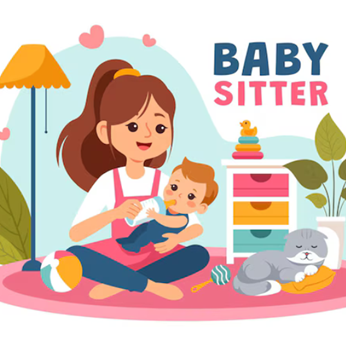What is cluster feeding and how to help new moms’ coupe with it

Breast feeding is a wonderful experience for most mums, but not when replaced by a period of cluster feeding. This feeding occurs when the baby is not contented with the normally spaced out feedings and wants to nurse constantly, with the nursing session lasting for a few hours or days.
Most common in the early weeks of life, cluster feeding could reappear at various times in the breastfeeding relationship. Occurring when there is a growth spurt, and during teething, this period of constant feeding could prove very tough for the new mother and she may be happy to know how to cope up with it. It would be informative first to know why cluster feeding happens.
Reasons for cluster feeding and how long does it last:
Your baby’s cluster feeds does not indicate a low milk supply or that your baby is not getting enough milk; this feeding relates to the developmental growth in your baby that makes a demand for milk change meeting the demand for protein, fat and calories. This need for additional nutrients makes for changes in the components of milk over a period of time. It would be informative here to note that cluster feeding occurs between seven and 10 days, two to three weeks, four to six weeks, three months, four months, six months and nine months; all times of growth spurt.
Cluster feeds often occur in "chunks", when a baby will feed more frequently for a few hours or continuously for two or three days at a stretch proving very stressful for the mother, However do not give your baby a bottle to get a break; it will only make the breast milk remain low in calorie and protein and the baby will not get the nutrients. This increased demand for breast milk sends a signal to the body to change its current components in milk.
How to cope with cluster feeding:
Convince yourself that it is absolutely normal and learn to relax without getting upset or frustrated. Sit down with the remote or a good book and settle in.
Practice skin-to skin contact by holding your baby against your skin; this will calm the baby, increase your milk-producing hormones and provides easy breastfeeding access.
Constant feeding can be exhausting; take care of yourself by remaining hydrated and eating enough throughout the day. If your baby feeds all night then try to take a nap earlier in the day.
Give your baby a warm and relaxing bath followed by a gentle massage; it could help calm your baby during these fussy times.
Enlist the help of your spouse, family member or friend to hold the baby while you take a nap, a shower, or a walk; you could also have a helper take over some of the household chores or watch your older children.
Go outside with your baby for a walk; the sunlight and fresh air could do a lot good for both your moods.
Lastly remain connected with other mother either online or at breastfeeding support group; you would feel great to know that there are other mums who are in the same situation as you.
Image Courtesy: Google
Take the next step toward your goals
Share your requirement and find the best care providers in your area
-
Looking for a caretaker’s job? Build your profile and get in touch with families in your vicinity.
-
Discover nannies, babysitters, cooks, housekeepers, pet sitters, and elder care under one roof.
-
Get all the support you need to run a successful care center.
-
Search for appropriate centers near you depending on your needs.
Care Corner Insights: Blog Library

Nanny vs. Daycare in Naperville, IL: What Works Best for Indian Working Couples?
Hey Naperville Parents! Balancing work and family life is no small feat—especially for Indian working couples trying to juggle careers, household responsibilities, and parenting. One of the biggest decisions you’ll face? Choosing between a nanny or

Housekeepers in Sugar Land, TX: Deep-Cleaning Checklists for Indian Homes
Housekeepers in Sugar Land, TX: Deep-Cleaning Checklists for Indian Homes Indian cooking = flavor + spices + love… but also oil splatters and stubborn stains. Time to reset! Degrease stovetops, chimneys, and exhaust fans. Scrub countertops, tiles,

12 Easy After-School Snack Ideas for Kids Who Get Hungry Quickly
School’s out, and the hunger hits hard! If your little ones come home ravenous and ready to raid the kitchen, you’re not alone. After-school snack time is prime time for refueling, recharging, and maybe even sneaking in a little nutrition. So here ar

Vegetarian Home Cook Services in Sunnyvale, CA: North & South Indian Meal Prep for Busy NRIs
Between work, family, and daily responsibilities, finding time to cook fresh meals can be difficult. That’s when a vegetarian home cook service in Sunnyvale makes life easier—bringing authentic North and South Indian dishes straight to your table. T

Hiring a Live-In Nanny in Plano, TX: A Practical Guide for NRI Households
For NRI families living in Plano, TX, raising children while managing work and household responsibilities can feel overwhelming. Many parents find that hiring a live-in nanny provides the right balance of support, convenience, and cultural comfort. U

Daycares in Fremont, CA for Indian Toddlers: Curriculum, Food Policies & Waitlists
You’ve probably met them — the parents at the park chatting about Montessori vs. play-based learning while handing their toddler a homemade paratha. The ones who ask every daycare in Fremont if they serve vegetarian meals. And yes, the ones who have

Babysitters in Jersey City, NJ for NRI Parents: Last-Minute, Weekend & Evening Options
You’ve probably seen them — the parents juggling grocery bags in one hand and a phone call to grandma in India in the other, while trying to keep their toddler from running into the road. The ones who cancel dinner plans because the babysitter bailed

Best Nanny Services in Edison, NJ for Indian Families: Costs, Language, and Cultural Fit
Edison, NJ, is home to one of the largest Indian communities in the U.S., and finding a nanny here often means looking for more than just childcare skills. For Indian families, cultural understanding, language fluency, and traditional values play a b

What Is Helicopter Parenting? How It Affects Children and Ways to Avoid It
You’ve probably seen them. The parents at the playground who shadow every move, wiping invisible germs off the slide before their child touches it. The ones who fill out job applications for their teens. And yes, the ones who email college professors

Are Weighted Blankets Safe for Children? Pros and Cons Explained
Weighted blankets have become a cozy trend in recent years. From helping adults sleep better to calming anxiety, they’ve earned a spot in many households. But when it comes to kids, especially the little ones, parents often ask: Are weighted blankets